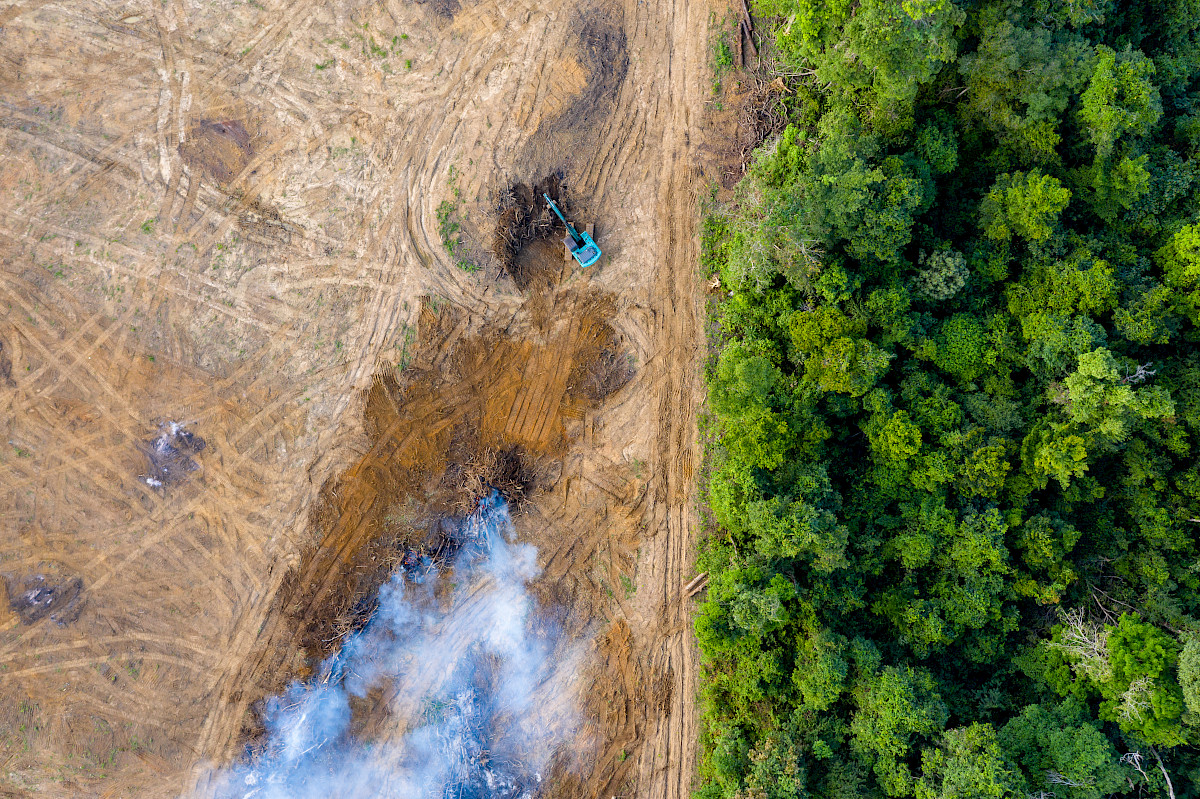Despite ongoing deforestation in the Amazon, Brazil’s central bank is sending encouraging signals for a more sustainable financial system, according to Nordea AM’s Thede Rüst. (Image: Shutterstock.com/Richard Whitcombe)
Engagement activities are mainly focused on companies. In the fixed income universe, however, according to Thede Rüst of Nordea Asset Management, it is at least as important to dialogue with governments.
Active ownership – engaging and exercising voting rights to influence corporations – is now recognized by the vast majority of investors as a positive medium. This was observed by Thede Rüst, Head of Emerging Markets Debt at Nordea Asset Management. It wasn’t always like that. In addition to promoting progress, constructive dialogue with businesses is increasingly accepted as an essential element of long-term value creation in equity and bond markets.
“However, with most fixed income assets issued by countries and government agencies, there remains a great deal of skepticism about the ability of ESG-focused asset managers to have a positive impact on government institutions, particularly in emerging markets,” he said. Rüst. Using the example of Russia, which was a significant component of emerging market bond indices in the past, he shows that engagement efforts may not always be successful.
In these cases, there is no substitute for a robust ESG research framework in which human rights and governance factors play an important role. Therefore, in the case of Russia, Nordea AM froze all purchases of the country’s government bonds in 2020 due to growing signs of deterioration in governance standards. In January 2022, the company then sold all remaining assets.
Encouraging signals from Brazil
While working with governments, especially in emerging markets, can often be difficult, positive change is still possible, explains Rüst: “In light of the negative financial effects of the ongoing rainforest destruction, we at Nordea have decided in 2019, for example, to avoid issuing Brazilian government bonds, buy more for our internally managed emerging market debt strategies. “
However, in 2020 Nordea became a founding and advisory member of the Investors Policy Dialogue on Deforestation (IPDD), a joint effort to initiate and coordinate political dialogue to stop deforestation. The Brazil Working Group was the IPDD’s first formal national workflow, which has since expanded to Indonesia.
“The Brazilian government has not done enough to make us change our investment position, but we are encouraged by the recent progress,” said Rüst. “For example, the far-reaching ESG regulations announced by the Central Bank of Brazil at the end of last year are a good step forward. The new regulation includes the requirement that all environmental, social and climate impacts be considered for all services. and financial products. ” The central bank is also preparing to require the country’s banks to take into account potential losses due to phenomena related to climate change, such as droughts, floods and fires.
Great advances in social factors
While involvement in the climate crisis has accelerated in recent years, great strides have also been made in positively influencing governments on the “S” in ESG. For example, Nordea is in discussions with the Ghanaian government about widespread child labor in the country’s cocoa industry.
Member of a group of experts of the European Commission
Thede Rüst has been appointed as a member of a high-level expert group of the European Commission. This is committed to expanding sustainable finance in low- and middle-income countries. Rüst and the other 19 members will develop recommendations on how to mobilize more funds from the private sector, which, among other things, enable low- and middle-income countries to carry out sustainable infrastructure projects.
Studies on the effectiveness of child labor policies have shown that the most effective policies are not necessarily those specifically designed to prevent child labor. Efforts to increase enrollment and retention rates have proven most effective alongside building schools and upgrading other infrastructure. In Ghana, school enrollment and retention rates have also increased in recent years at all levels of education. The literacy rate has even risen from less than 60% to nearly 80% in the past two decades.
“Despite government intervention, child labor remains widespread. In recent discussions with the government, we have been informed that the number of children involved in cocoa production in Ghana has remained stable despite the fact that cocoa production has increased by over 50. % in recent years. We will continue our dialogue with the authorities to underline the importance of continued investment in education and infrastructure, especially since the Covid-19 pandemic has blocked educational progress in many parts of the Third World ” , Rüst comments on commitment. In addition, more work needs to be done as cocoa production expands into new geographic areas of the country and the infrastructure needed to curb child labor is less developed in remote regions.


